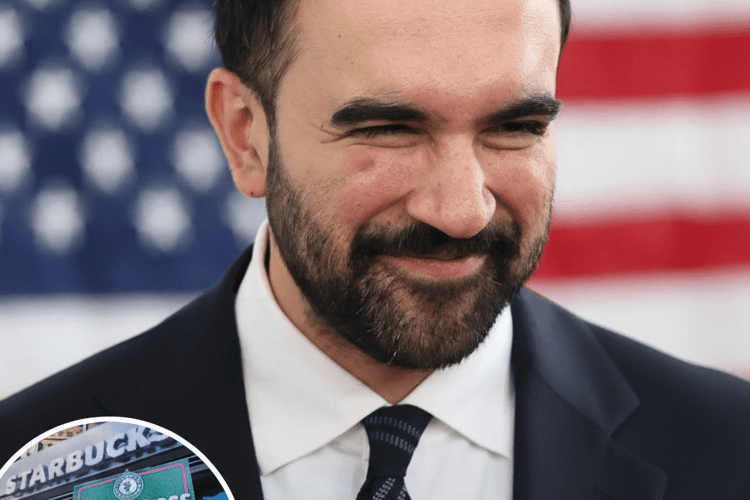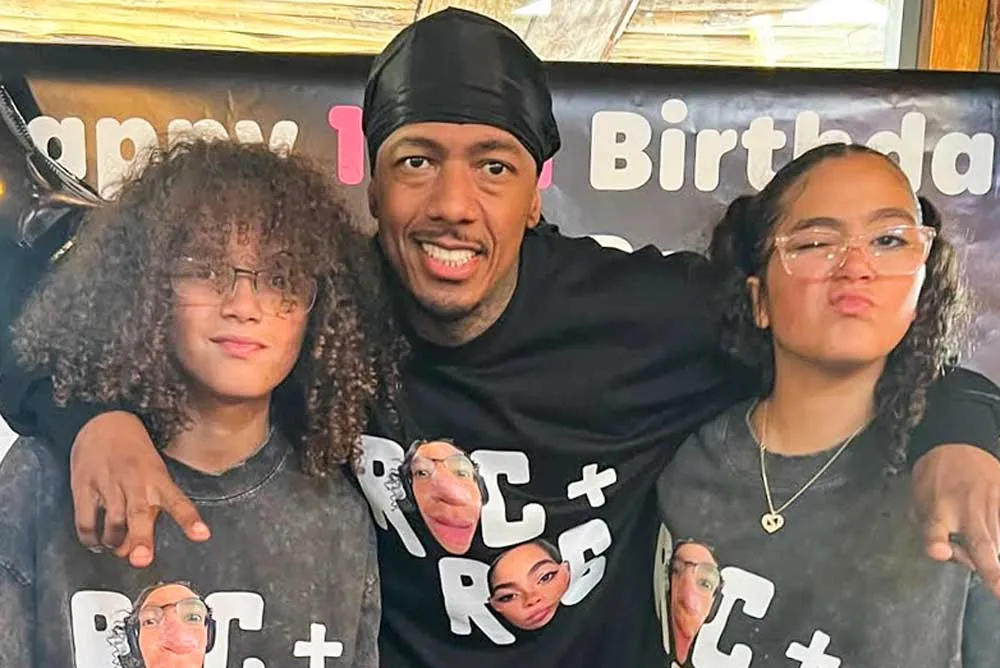From Union Cheers to Coffee Chaos: Mayor-Elect Zohran Mamdani’s Fiery Call to Ditch Starbucks Ignites Nationwide Labor Storm – As Red Cup Day Turns Red with Rage, Will His Free Rides and Rent Freezes Fuel a Bigger Backlash?
In the crisp autumn chill of a Brooklyn sidewalk, where the steam from a street vendor’s coffee cart curled like a rebel’s breath against the November sky, 28-year-old barista Lena Vasquez hoisted a picket sign that read “No Contract, No Coffee” on November 13, 2025, her voice joining a chorus of chants that echoed off the brownstones and bodegas of Bushwick. It was Red Cup Day, Starbucks’ annual holiday kickoff where free festive mugs usually draw lines around the block, but this year, the line was a picket, stretching from Bedford Avenue to the L train with union workers in green aprons turned solidarity sashes. Lena, a single mom scraping by on $17 an hour to cover rent in a city that’s priced her out of everything but hope, felt the fire in her chest as she locked eyes with passersby—some nodding in support, others clutching their lattes like lifelines. “We’re not asking for the moon,” she shouted over the megaphone, her toddler’s photo tucked in her pocket like a talisman. “Just fair pay, safe schedules, and a voice that isn’t silenced.” But it was a voice from City Hall-in-waiting that amplified her cry into a roar: Zohran Mamdani, New York City’s socialist mayor-elect, whose razor-thin victory on November 5 had already shaken the establishment, took to X that evening with a post that racked up 500,000 views in hours. “Starbucks workers across the country are on an Unfair Labor Practices strike, fighting for a fair contract,” he wrote, his words a digital megaphone for the masses. “While workers are on strike, I won’t be buying any Starbucks, and I’m asking you to join us. Together, we can send a powerful message: No contract, no coffee.” For Lena and her fellow strikers, it was more than a tweet—it was validation, a thread of connection in a fight that’s felt lonely for too long, a reminder that in the city’s concrete jungle, even the underdog’s bark can bite.

Mamdani’s call wasn’t a whim; it was woven into the fabric of a campaign that painted him as the champion of the overlooked, a 33-year-old Ugandan-American son of academics whose Queens upbringing in immigrant enclaves fueled a fire for equity that’s burned bright since his days as a DoorDash driver paying Columbia tuition. Elected to the state assembly in 2020 on a wave of DSA fervor, Mamdani stormed the mayoral race with a manifesto that read like a love letter to the working class: free buses to end the $2.90 fare trap for 4 million daily riders, a rent freeze capping hikes at 2019 levels to shield 2 million tenants from the 40 percent surge since the pandemic, and universal childcare to lift 500,000 families from the $20,000 annual burden that keeps parents chained to low-wage grind. “New York isn’t a machine for the rich—it’s a home for the heart,” he thundered at his victory rally in Flushing Meadows, his voice cracking with the raw emotion of a man who’s seen his neighbors evicted over a missed month’s rent. That authenticity resonated, flipping the race against Andrew Cuomo’s machine in a 51-49 squeaker, turnout spiking 15 percent among young voters and Latinos who saw in him a fighter against the Bloomberg-era gloss that priced them out. Now, with Gracie Mansion in sight, Mamdani’s Starbucks salvo is his first flex of that muscle—a pro-union pledge in action, tying his labor love to the levers of power he’ll wield come January. For strikers like Lena, whose union, Starbucks Workers United, represents 9,000 of the chain’s 200,000 baristas, it’s a lifeline: “Zohran gets it—he’s one of us, not some suit sipping $8 pour-overs while we scrape tips,” she said, her sign drooping slightly as the afternoon waned, but her spirit unbroken.
The strike itself was a powder keg primed by years of simmering discontent, exploding on Red Cup Day—the coffee giant’s Black Friday of sorts, where holiday hype typically nets $1 billion in seasonal sales—with walkouts in over 25 cities from Seattle to Boston. It was the fourth such action by the union since 2023, the third under CEO Brian Niccol’s watch since his 2024 ascension, and the timing was no accident: as customers queued for those iconic red cups emblazoned with festive designs, picketers waved signs reading “Don’t Cross Our Picket Line” and “Baristas on ULP Strike,” their chants a rhythmic rebuke to a company accused of stalling on a first contract. Negotiations, which seemed promising in February 2025 after months of impasse, collapsed amid mutual finger-pointing—the union filing over 1,000 unfair labor practice charges with the National Labor Relations Board for tactics like store closures and firings of organizers, while Starbucks countered that the union’s demands for $25 minimum wage and guaranteed hours were “unreasonable” in a retail landscape where average pay hits $19 an hour ($30-plus with benefits). Starbucks, in a statement to the Post, insisted 99.9 percent of its 16,000 U.S. stores stayed open, downplaying the disruption as “limited,” but the reality on the ground told a different tale: 60 stores shuttered last year on the same day, and this time, with Mamdani’s megaphone, the boycott buzzed louder, social media ablaze with #NoContractNoCoffee posts from Harlem to Hollywood.

For Mamdani, the boycott is more than solidarity—it’s a preview of his mayoral playbook, a socialist symphony where labor’s rhythm sets the tempo for city governance. His free buses promise, aimed at slashing the MTA’s farebox revenue gap and easing commutes for the 60 percent of New Yorkers who rely on public transit, mirrors the union’s push for “living wages” that let workers afford the rides they serve. The rent freeze, capping increases at inflation minus 1 percent to protect 1.2 million rent-stabilized units from the 8.5 percent jumps that evicted 25,000 families last year, echoes the strikers’ cry for stable scheduling amid Starbucks’ “clopen” shifts—closing one night, opening the next—that leave baristas exhausted and underpaid. And free childcare, a $4 billion pledge to cover infants through pre-K for all 400,000 eligible kids, speaks to the hidden toll on parents like Lena, whose $17 an hour barely covers daycare while she fights for overtime pay. “Zohran’s not just talking—he’s walking the picket with us,” Lena said, her cheeks flushed from hours in the cold, a Starbucks apron draped over her coat like a badge of honor. Mamdani’s X post, amplified by 1.1 million followers including AOC and Bernie Sanders, sparked a surge: 200,000 #BoycottStarbucks tweets by midnight, with NYC stores seeing 15 percent foot traffic dips per early Square data. It’s the kind of grassroots groundswell that propelled his win, a reminder that in a city of 8.8 million dreamers, power flows from the people when leaders listen.

Starbucks, that Seattle behemoth with $36 billion in 2024 revenue and 200,000 U.S. employees, isn’t flinching yet—the company’s statement to the Post called the strikes “isolated” and touted its “industry-leading” benefits like tuition aid and stock grants, framing the union’s demands as a threat to the “flexible model” that powers its global grind. Niccol, the former Chipotle chief whose turnaround playbook includes AI-driven scheduling and Sharpie-doodled cups for “personal touches,” has vowed to “bargain in good faith” but accused the union of “disrupting the holiday joy we create for customers.” The NLRB, under Trump’s Labor Secretary Lori Chavez-DeRemer, has backed 70 percent of the union’s charges in preliminary rulings, a shift from Biden-era neutrality that could force concessions by spring. For the strikers, it’s a long game—last year’s Red Cup action closed 60 stores temporarily, and this year’s, with Mamdani’s boost, could double that pressure, especially in union-hot NYC where 150 locations are organized.

The broader canvas paints a portrait of labor’s resurgence in Trump’s America, where blue-collar battles blend with big-city bold. Mamdani’s boycott call, coming weeks after his upset over Cuomo, signals a mayoralty that won’t shy from corporate showdowns—his transition team already eyeing MTA contracts for union-first bids and rent board appointments to enforce freezes. Critics like City Council Minority Leader Joe Borelli decry it as “grandstanding over lattes,” warning of business flight in a city where 40 percent of small firms cite labor costs as a chokehold. But for Lena Vasquez, watching her son nap in a borrowed stroller as the picket winds down, it’s the spark of solidarity that sustains: “Zohran sees us—not as numbers, but as neighbors fighting for a fair shake.” As November’s leaves turn to gold in the parks where strikers rest, Mamdani’s voice rises like steam from a fresh brew—a call not just for coffee justice, but for a city where the working heart beats stronger, one boycott at a time.


